By Type (7)
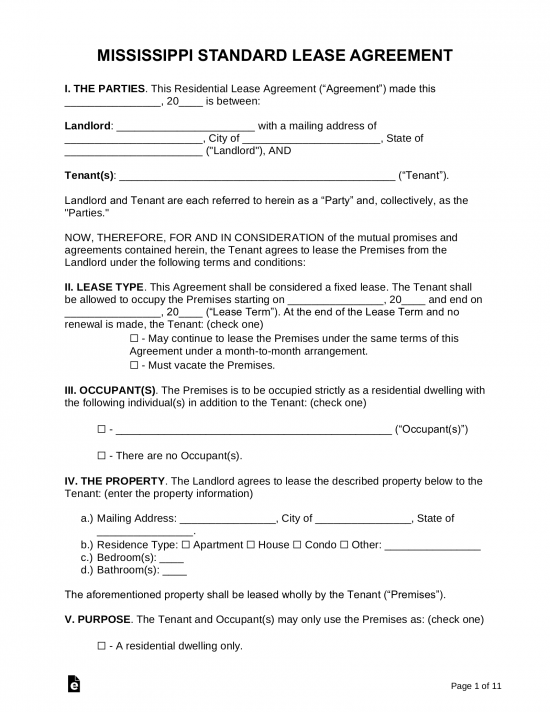 Standard Residential Lease Agreement – Fixed-term agreement usually for a period of one year. Standard Residential Lease Agreement – Fixed-term agreement usually for a period of one year.
Download: PDF, MS Word, OpenDocument |
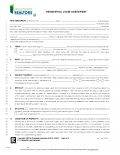 Association of Realtors Lease Agreement – Provided by the Mississippi Association of Realtors to allow a realtor to write a rental contract between a landlord and tenant. Association of Realtors Lease Agreement – Provided by the Mississippi Association of Realtors to allow a realtor to write a rental contract between a landlord and tenant.
Download: PDF |
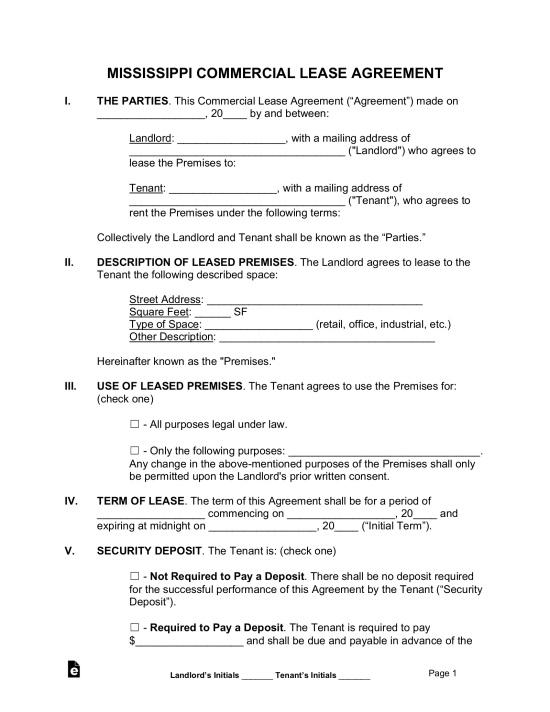 Commercial Lease Agreement – Contract for the leasing of space to be utilized by a business. Commercial Lease Agreement – Contract for the leasing of space to be utilized by a business.
Download: PDF, MS Word, OpenDocument |
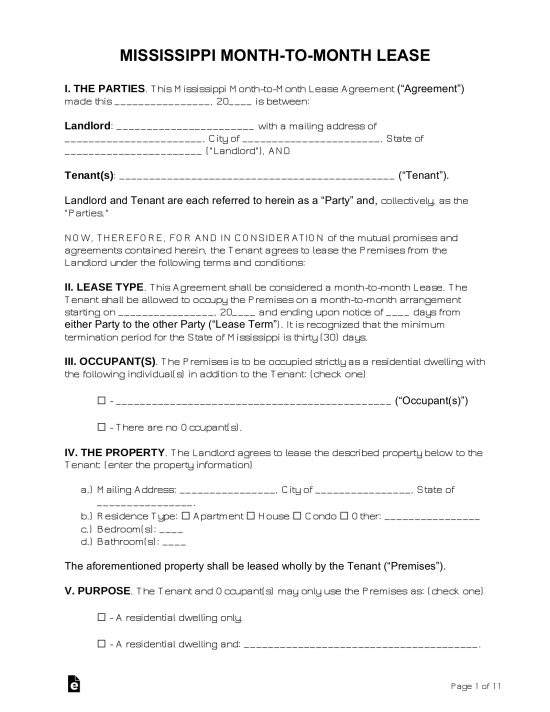 Month-to-Month Lease Agreement – Known as a tenancy at will and should be written in accordance with § 89-8-19 and can be terminated at any time, by the landlord or tenant, within 30 days. Month-to-Month Lease Agreement – Known as a tenancy at will and should be written in accordance with § 89-8-19 and can be terminated at any time, by the landlord or tenant, within 30 days.
Download: PDF, MS Word, OpenDocument |
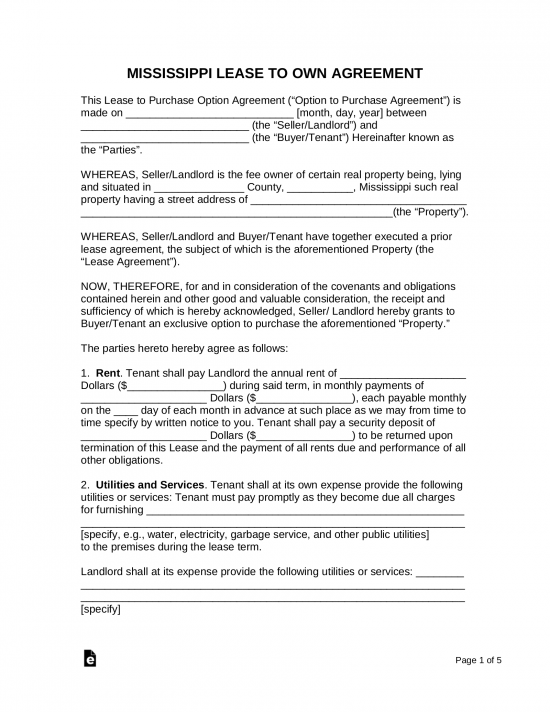 Rent-to-Own Lease Agreement – Standard residential version with an option to buy. Rent-to-Own Lease Agreement – Standard residential version with an option to buy.
Download: PDF, MS Word, OpenDocument |
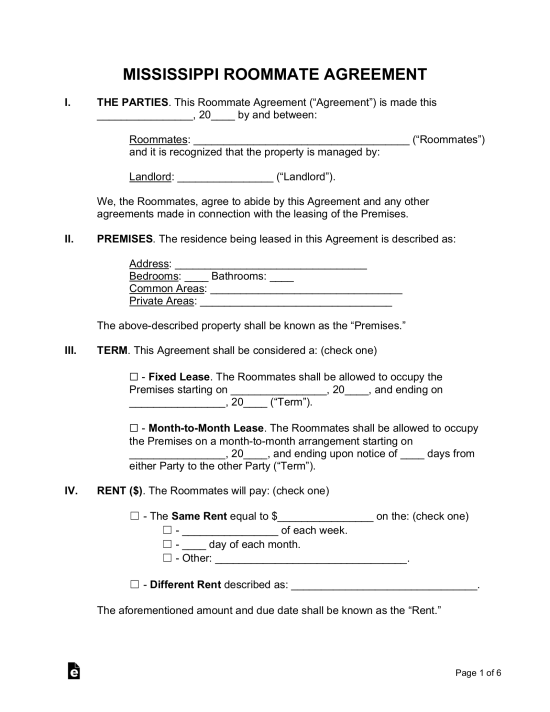 Room Rental (Roommate) Agreement – For shared housing arrangements to have a common agreement amongst the roommates. Room Rental (Roommate) Agreement – For shared housing arrangements to have a common agreement amongst the roommates.
Download: PDF, MS Word, OpenDocument |
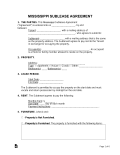 Sublease Agreement – For a tenant looking to find someone else (“subtenant”) to be able to occupy the same space and continue payment. Sublease Agreement – For a tenant looking to find someone else (“subtenant”) to be able to occupy the same space and continue payment.
Download: PDF, MS Word, OpenDocument |
Required Disclosures (1)
- Lead-Based Paint Disclosure & EPA Pamphlet – Federal law requires that for any residential unit built prior to 1978, this form must be attached to the lease agreement to inform the tenants of the possibility of lead-based paint in the walls.
Security Deposits
Maximum Amount – There is no limit on how much the landlord may request.
Collecting Interest – Mississippi state law does not require the landlord to hold the tenant’s security deposit in an interest-bearing account.
Returning – The landlord must return the security deposit, minus any amounts necessary to cover unpaid rent or repairs to damages to the property, to the tenant within 45 days following the end of the tenancy.[1]
- Itemized List – If the landlord retains any amount of the security deposit to cover expenses incurred as a result of the tenant’s default, the landlord must provide an itemized list of the amounts being retained.[1]
When is Rent Due?
Grace Period – Mississippi law does not establish a mandatory grace period for the late payment of rent. Rent is due on the date agreed to in the lease.
Maximum Late Fee – State law does not limit fees imposed for late rent. However, any fees must be reasonable and previously mentioned in the lease agreement.
NSF Fee – If the landlord provides the tenant that a rent check has bounced, and the tenant fails to turn over the amount owed, the landlord may demand the amount owed along with a service charge of up to $40.[2]
Withholding Rent – Mississippi state law does not allow tenants to withhold rent to pay the costs of repairs.
Abandonment
Absence – There is no Mississippi state law establishing a length of time that a tenant must be absent for the unit to be considered abandoned.
Breaking the Lease – If the tenant gives notice of a breach of the rental agreement by the landlord, and the landlord does not remedy the breach within 14 days, then the tenant may terminate the lease without penalty.[3]
Tenant’s Utility Shutoff – If the tenant’s failure to keep essential utilities on the property constitutes a violation of building and housing codes affecting health and safety, then the landlord may terminate the lease and give 14 days’ notice for the tenant to quit the property unless the utilities are restored.[4]
Unclaimed Property – If the tenant has been evicted from the property and they leave behind personal property after moving out, the landlord may dispose of that property without further notice.[5]
